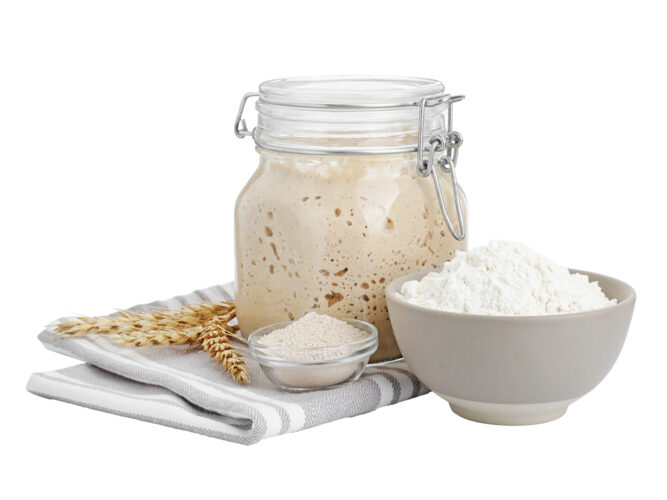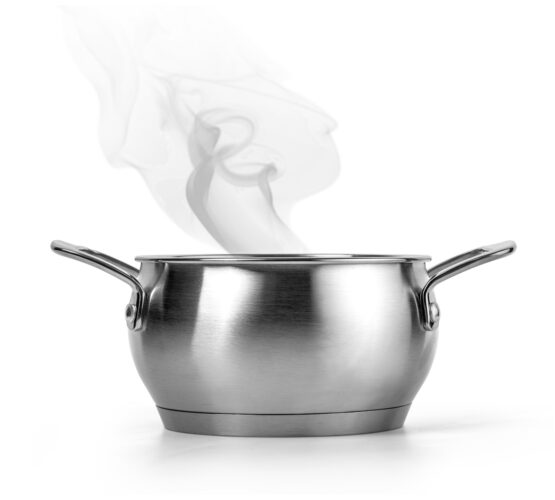Q I have leftover challah from my Shabbos Meal, can I use it to make a grilled cheese sandwich?
A The Shulchan Oruch1 rules that leftover bread from a dairy meal must be removed from the table before one eats meat on the same table, because it is forbidden to use the leftover bread from a meat meal together with dairy. The same would obviously apply in reverse; leftover bread from a meat meal would need to be removed from the table before eating dairy on the same table.
However, there are multiple factors that may be considered, especially given the way in which we eat our meals today.
First, our challah knife is usually designated for challah only and is pareve. Second, we eat on plates (not directly on the table) and the table itself (where the challah is located) is usually clean from any actual meat (unless of course one sees that it is not). Third, the sliced challah is usually kept in a challah basket or on a tray and not directly on the table.
Therefore, in a situation where the challah that one wishes to use for the grilled cheese sandwich was cut with a pareve challah knife and was kept in a challah basket or on a tray on the table, it would be permissible to use to make a grilled cheese sandwich. It also is understood then, that if one has half a challah loaf remaining, which was not even sliced, one would be allowed to use it to make a grilled cheese sandwich.2
This only applies to full slices that were not touched during the meal. However, pieces of bread handled during the meal may not be used to make the grilled cheese sandwich.
Q I cooked a pareve food item (kugel, vegetables, pasta, etc.) in a meat pot. May I eat it with dairy?
A This is a matter of dispute between the Mechaber and the Rema. The Mechaber3 allows it, and the Rema4 forbids it. For example, if one cooked pasta in a meat pot, and now one wants to add cheese to it, Sefardim, who follow the Mechaber, may do so, but Ashkenazim, who follow the Rema, may not. B’di’eved, if one already added the cheese to the pasta, even the Rema would be lenient and allow it (especially if the meat pot that was used was not used in the 24 hours prior to cooking the pasta).
In the above scenario (pasta or vegetables cooked in a meat pot), if one served the pasta on a clean dairy plate, even while still hot, it may be eaten, even according to the Rema. However, a liquid, like soup, may not be poured directly from the meat pot into a dairy bowl. If it was done, the food might be forbidden even b’di’eved if the keilim were ben yoma.
If one rewarmed the above-mentioned food (that was first cooked in a meat pot) in a dairy pot or a dairy oven/microwave, b’di’eved the food and keilim are still permitted, even according to the Rema. If one finds leftover food in the fridge that they wish to
reheat and they do not know if it was originally cooked in a dairy or meat pot, it is considered a b’di’eved situation and the food may be warmed in any pot if they do not have a designated pareve pot to use.
It should be noted that all the above scenarios are only applicable when the pots/dishes are completely clean. If they were not, and there is residue of meat (or dairy) on the pot, the pareve item may take on the status of the pot used. If one does not know whether the pot was clean, one can assume that it was clean5 and the food is permissible.
1 Y”D 89:4.
2 Igros Moshe Y”D 1:38.
3 Y”D 95:1.
4 Y”D 95:2.
5 Shach on Y”D 95:1.
6 Magen Avrohom 509:11.


 EN
EN  ZH
ZH  KR
KR  BR
BR  ES
ES  IN
IN  IL
IL 



